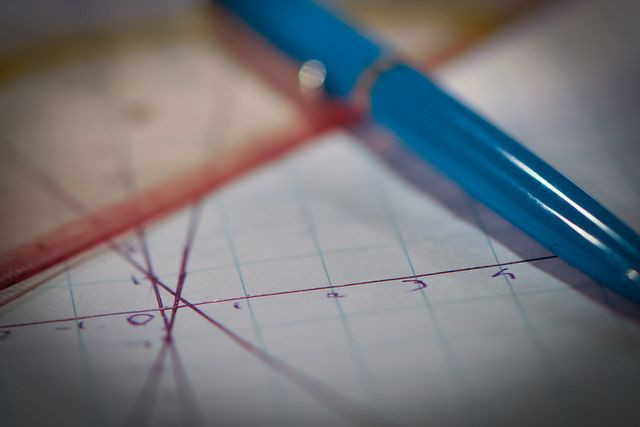Scientists Confirm That Math Problems Can Give Brain Physical Pain

Researchers have confirmed what decades of students in the classroom have long suspected: that math problems can give people physical pain. Interestingly, though, researchers found that it is not the actual solving of a math problem that creates pain, but the anticipation of a math problem that causes the damage.
The University of Chicago researchers hooked up 28 participants to functional magnetic resonance imaging (fMRI) machines. Within the group, 14 were classified as high-math anxiety individuals (HMA) and 14 were classified as low-math anxiety (LMA) individuals. They were both tasked with either identifying whether a math problem like (12-4)+19=25 was correct, or whether a series of letters, like retupmoc, would correctly spell a word if its letters were reversed. When a math problem was going to appear on the screen, a yellow circle would appear; when a word problem was going to be next, a blue square would appear.
The study, published in PLoS One, found that the posterior insula, an inner region of the brain, was activated in the brains of people with high-math anxiety anytime they saw a clue indicating that a math problem was coming up next. The posterior insula is associated with the experience of pain and registering threats to a person's body. However, the brain's reaction would evaporate when the person actually started doing math. For word problems, the feeling of pain decreased in these same individuals' brains, indicating that the brain saw the moment as a refuge, because at least the person did not have to do math. For LMA individuals, their brains registered no sensations when seeing a math problem or a word problem.
The researchers say that the pain that the brain feels in HMA individuals is self-validating, creating in these same people a reason for them to feel anxious about math. But the study also shows that math itself is not painful. Perhaps if people with HMA were able to move past their anxiety of the anticipation of math, they may grow to enjoy it.



























